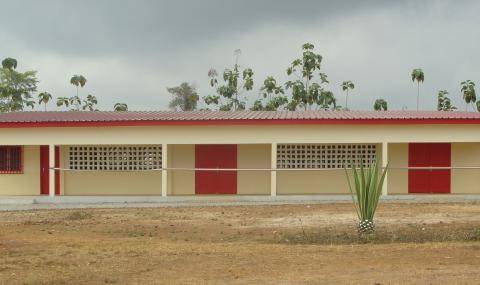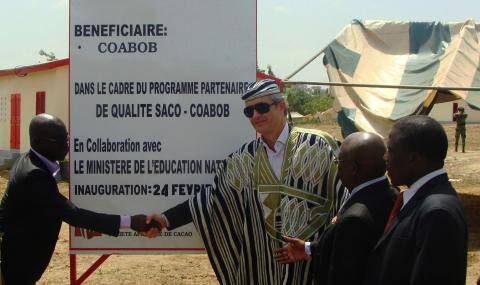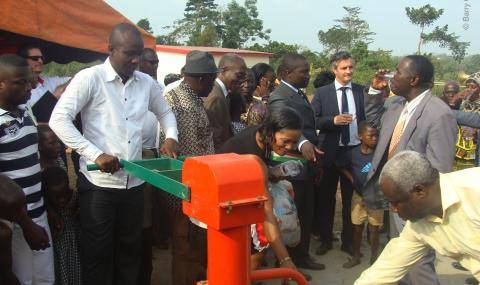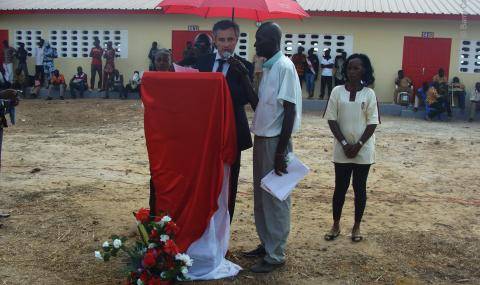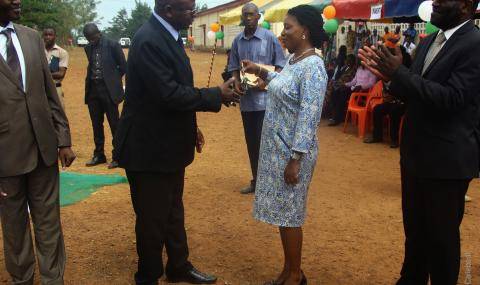Barry Callebaut funds classroom constructions in rural cocoa farming communities in West Africa
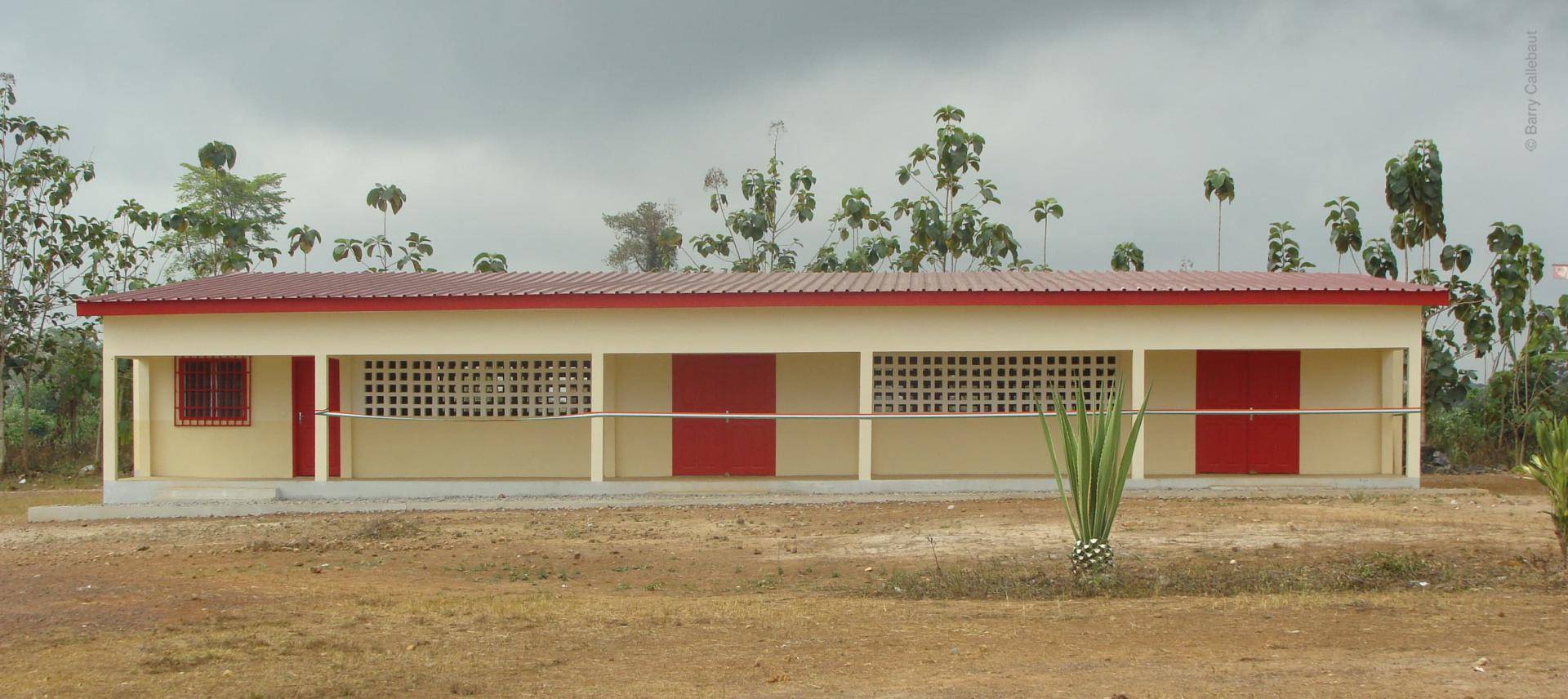
Barry Callebaut funds classroom constructions in rural cocoa farming communities in West Africa
- 12 new primary classrooms, school canteens, latrines, boreholes In Côte d’Ivoire; 4 additional classrooms and science lab at Akoupé secondary school
- New Kindergarten and school latrines for primary and junior high school children in Ghana
In the first six months of 2015, the Barry Callebaut Group, the world’s leading manufacturer of high-quality chocolate and cocoa products, inaugurated 4 education projects in rural cocoa farming communities. The 3 projects in Côte d’Ivoire and 1 in Ghana provide access to quality school facilities for approximately 2,500 children and youth at the Kindergarten, primary and secondary school levels.
The Barry Callebaut Group built this infrastructure as part of its community development program which covers Education, Child Protection, Women's Empowerment and Health. This program aligns with CocoaAction, the industry strategy to accelerate cocoa sustainability and improve the livelihoods of cocoa farmers and their communities. One of CocoaAction’s aims for community development is to increase attendance and enrollment of school-aged children in primary education by working closely with communities, governments, and local partners.
Education projects in Côte d’Ivoire…
In January and February 2015, Barry Callebaut inaugurated two primary schools, bringing the total number of classrooms in 10 primary schools built in Côte d’Ivoire to 36, benefiting 1,800 children. The two new schools are located in the villages of Affery and Blolequin (eastern Côte d’Ivoire). Each consists of 6 furnished classrooms equipped with solar powered lighting, a canteen, a water well, and separate latrines for boys and girls, and accommodates 300 children.
At the secondary school of Akoupé (eastern Côte d’Ivoire), started by the Group in 2009 with the construction of classrooms, science labs, latrines and a canteen, the company funded the extension of an additional 4 classrooms, a science lab and teacher’s office. The College now has 16 classrooms and an enrollment of 1,150 youth benefiting from this enlarged infrastructure.
…and Ghana
A new Kindergarten, with 3 classrooms, kitchen and director’s office, was inaugurated in May 2015 in Otsenkorang, central Ghana, co-funded by Japanese chocolate maker Chocolate Design and Barry Callebaut Ghana. Also in Otsenkorang, two separate latrine facilities for boys and for girls were built by the Group for children attending the primary and junior high schools.
Marina Morari, General Manager Community Development, the Barry Callebaut Group, says: “We work in close cooperation with national ministries and local education officials, supporting their commitment to improve access to quality primary education in rural cocoa farming communities.”
More info about the Group’s activities towards a more sustainable cocoa sector can be found in its Cocoa Sustainability Report.
***
About Barry Callebaut Group:
With annual sales of about CHF 5.9 billion (EUR 4.8 billion / USD 6.5 billion) in fiscal year 2013/14, the Zurich-based Barry Callebaut Group is the world’s leading manufacturer of high-quality chocolate and cocoa products – from the origination and processing cocoa beans to producing the finest chocolates, including chocolate fillings, decorations and compounds. The Group runs more than 50 production facilities worldwide and employs a diverse and dedicated global workforce of over 9,300 people.
The Barry Callebaut Group serves the entire food industry, from industrial food manufacturers to artisanal and professional users of chocolate, such as chocolatiers, pastry chefs, bakers, hotels, restaurants or caterers. The two global brands catering to the specific needs of these Gourmet customers are Callebaut® and Cacao Barry®.
The Barry Callebaut Group is committed to sustainable cocoa production through its “Cocoa Horizons” initiative to help ensure future supplies of cocoa as well as improve farmer livelihoods.
